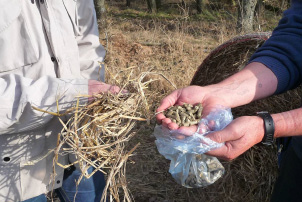
With a number of coal-fired power stations tipped to close over the next decade, the Queensland timber industry says it could help alleviate any energy shortages by producing green fuel from its waste but is being held back by a lack of government incentives. Source: ABC Rural
About one million tonnes of wood waste is generated in the state every year and Timber Queensland CEO Mick Stephens said that amount of bio-fuel has the potential to create about 100 megawatts of baseload power.
“The timber industry is a renewable industry, it’s based on a resource that’s re-grown and we generate a fair bit of wood waste, things like sawdust and shavings,” he said.
“So not only could we be producing renewable timber but also renewable bio-energy, so it would really be a good win for industry and green energy.”
The industry body has been investigating the viability of building green power plants at the state’s sawmills but has found a lack of financial incentives from government is hampering investment.
“It’s really hard to get bio-energy projects up because the capital costs can be quite high for the saw millers and other operators,” Mr Stephens said.
“There seems to be a lack of incentives to get some of those more localised facilities up and running.”
The timber industry in Queensland generates about a million tonnes of wood waste every year.
Mr Stephens said attractive feed-in tariffs would be beneficial, to lock in forward energy contracts.
“At the moment we’re not seeing a lot of premiums for bio-energy even though it’s a baseload power, so we need those sorts of market signals to generate investment,” he said.
In the meantime, Timber Queensland is collaborating with the sugar industry, which is leading the state’s biofuels drive.
Miller MSF Sugar is building a green energy plant on the Atherton Tablelands, which will provide enough baseload electricity to power 27,000 homes. It will be fuelled largely by bagasse — the fibre left over once sugar cane has been juiced — as well as agave.
Around 50,000 tonnes of wood waste can generate about 5 megawatts of power.
Construction on MSF Sugar’s first $75-million green power plant is scheduled for completion in mid-2018. However, MSF Sugar’s business development manager Hywel Cook said it was seeking waste from other agricultural industries, including timber, to supplement its operations.
“We want to be in a position that in July next year, when our power station is going, to take any of their residues that they can’t find a better use for.
“We could also take peanut shells, and things like waste bananas, anything which we can separate what we can ferment from the fibre that’s left in the product.”
MSF Sugar’s CEO Mike Barry said the opportunities were enormous and he has agreed that governments could do more to support alternative energy industries.
Mr Barry has criticised the Federal National party for rejecting a motion at its recent conference to support incentives for renewable energy projects.
“We’re in an industry that has no support, no subsidies and we’re competing against other developed countries like Thailand and Brazil, which have not only mature renewable energy industries but also bio-fuels industries and they’ve got diverse revenue streams.
“So if you want to have a vibrant sugar industry it’s got to be able to compete on the same playing field as our competitors.”





